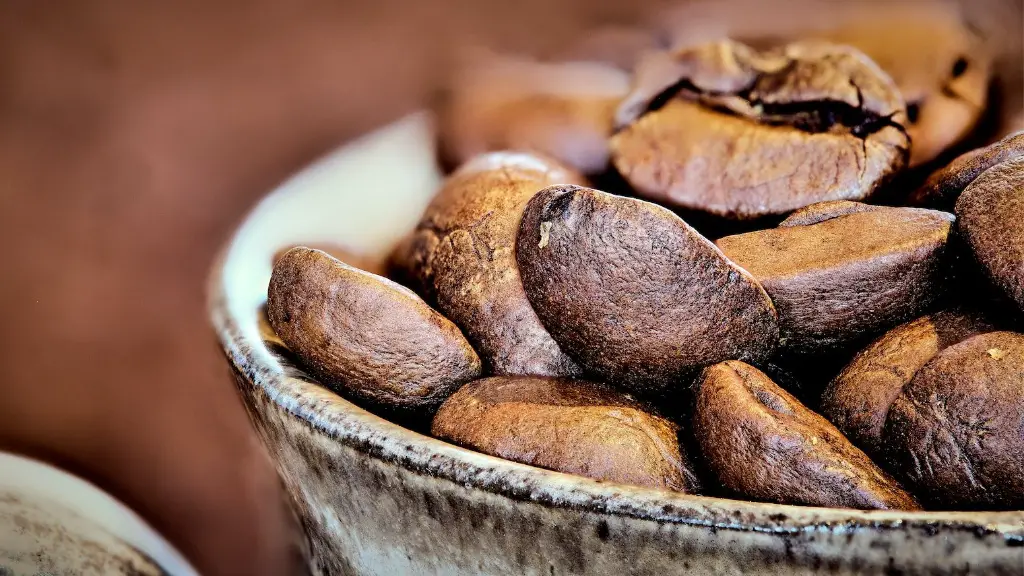When you’re having a baby, you want to be as comfortable as possible. For some women, that means sipping coffee during labor. But is it safe and will it really make a difference in how you feel?
Most doctors agree that moderate amounts of caffeine are fine during pregnancy, however there’s some debate over whether you should be drinking coffee during labor. Many experts believe that it’s understandable that some women would want a cup of coffee while they’re in labor, but they also caution that the effects of caffeine on the baby have not been fully researched.
Caffeine is a stimulant that can raise your heart rate, which is not something you want when you’re already in a state of stress. Some doctors also worry that the baby may not be able to metabolize caffeine as quickly as an adult, and it could build up in their system causing issues later on. Of course, that doesn’t mean that it’s something to be overly concerned about, but it is something to consider.
Experts agree that the best way to get caffeine during labor is to use other options such as decaf tea or herbal tea. Decaf coffee is also an option, although it still contains a small amount of caffeine. If you do decide to drink coffee during labor, make sure it’s not too strong and only consume small amounts. Also, make sure to drink plenty of water to stay hydrated.
Some women are also concerned about the effects of caffeine on their milk supply. Again, the research is not conclusive, but it’s generally believed that moderate amounts of caffeine won’t have a negative effect. Once your baby is born, it’s best to keep your caffeine intake to a minimum since babies are more sensitive than adults, and too much caffeine can make them irritable.
Overall, the best advice is to talk to your doctor before you make any decisions. They’ll be able to give you the best advice based on your health and the health of your baby. Whilst it can be tempting to have a cup of coffee during labor, it’s probably a good idea to stick to decaffeinated options.
Effects of caffeine on labour
Caffeine is known to have stimulating properties, which means it can have an effect on the labour process. It’s difficult to measure the effects of caffeine on labour as the studies done about it tend to be small and there are so many variables that can come into play. That being said, some experts believe that caffeine can increase both the intensity and duration of labour as it can cause contractions to become stronger and more frequent.
That being said, studies have shown that caffeine does not appear to have any effect on the duration of labour or the likelihood of having a successful labour. So whilst there may be some effects of caffeine during labour, they don’t appear to be profoundly significant.
It’s also important to note that the amount of caffeine consumed can have a significant impact on the results. Higher amounts of caffeine can cause irritability and restlessness in both you and the baby, and may lead to a disturbed sleep pattern. So if you do decide to drink coffee during labour, make sure it’s not too strong and only consume small amounts.
Benefits of coffee during labour
Although the effects of caffeine during labour aren’t totally clear, some women report that it helps them to stay alert and focused during the labour process, and that it alleviates some of the exhaustion and discomfort. This is because caffeine acts as a stimulant and can help to increase focus whilst providing a temporary boost of energy.
Coffee can also be a comforting ritual for some women and can help to break up the monotony of contractions. For instance, if someone is having a cup of coffee between contractions, it may provide a welcome break from the intensity of the situation. This can make labour less daunting and allow the individual to relax, which can be beneficial in terms of overall comfort. Furthermore, coffee during labour can help to improve a feeling of control and empowerment by providing something familiar during an unfamiliar situation.
In addition to this, coffee can provide a distraction from the pain of labour. When a woman is busy making a cup of coffee between contractions, it can help her to stay focused and to block out the pain when the contractions come. It can also help to keep her energized as labour can be quite draining, both physically and emotionally.
Risks of coffee during labour
The main risk associated with drinking coffee during labour is the potential for the baby to be exposed to too much caffeine. It’s important to remember that caffeine is a stimulant and it can have an effect on both the mother and baby. While many doctors believe moderate amounts of caffeine are safe during pregnancy, it is important to consult your doctor before drinking any beverages with caffeine.
Caffeine has also been known to cause dehydration and electrolyte imbalances, and so it’s important to make sure you’re staying hydrated with plenty of fluids as well as monitoring your electrolytes. Additionally, caffeine can cause jitteriness and restlessness, which can be frustrating for both the mother and baby, so it’s best to keep the intake to a minimum.
It’s also worth noting that too much caffeine can increase the risk of preterm labour. This is because caffeine can cause the baby to be more active, which can lead to early contractions and labour. To be safe, it’s best to limit your caffeine intake to no more than two cups of coffee per day.
Alternatives to coffee during labour
If you’re worried about the potential risks associated with drinking coffee during labour, there are plenty of other options that are both safe and beneficial. For instance, decaffeinated tea and herbal tea are both excellent alternatives. Not only does herbal tea provide the same comforting ritual as coffee, but it’s also packed with vitamins and minerals that can help to boost energy levels.
Other alternatives include energy drinks, sports drinks, and electrolyte beverages. These can help to keep you hydrated and buoyed up during labour and are usually much gentler on the stomach than coffee. Additionally, they often contain B vitamins, which can help to reduce fatigue.
Finally, if you’re finding regular fluids don’t seem to be enough, you can always opt for a labor and delivery friendly meal. Eating a light meal can help to provide the energy needed to get through labor and also help reduce stress and fatigue. Examples of good labor-friendly foods include toast with butter or cream cheese, smoothies, cereals, and yoghurts, to name just a few.
Pros and cons of drinking coffee during labour
There are both pros and cons to drinking coffee during labour. On the one hand, it can provide a comforting ritual and distraction from the pain of labour, while also helping to keep energy levels up. However, there’s also the potential risk that the baby could be exposed to too much caffeine, which can cause jitteriness and restlessness as well as dehydration.
Ultimately, the decision to drink coffee during labour is a personal one and should be taken in consultation with your doctor. Whilst drinking coffee may not be the best choice for everyone, it can provide some comfort and energy, particularly during long labours.
It’s also important to remember that there are plenty of other alternatives to coffee during labour, such as decaffeinated tea, herbal tea, energy drinks, sports drinks, and light meals.These can all provide a welcome distraction from the intensity of labour as well as providing vital sustenance.





